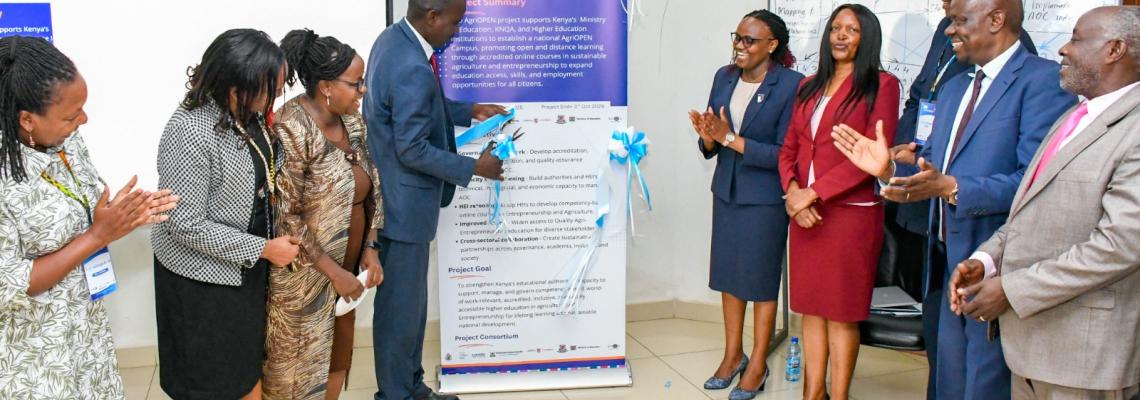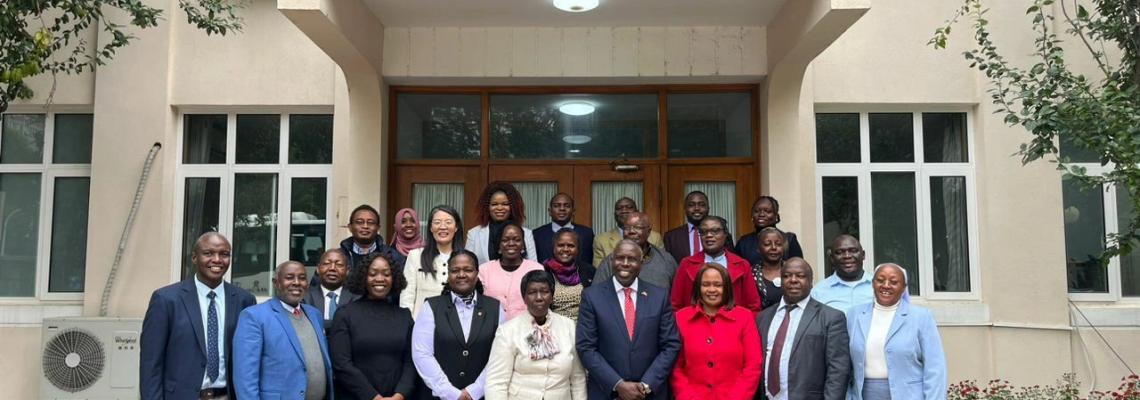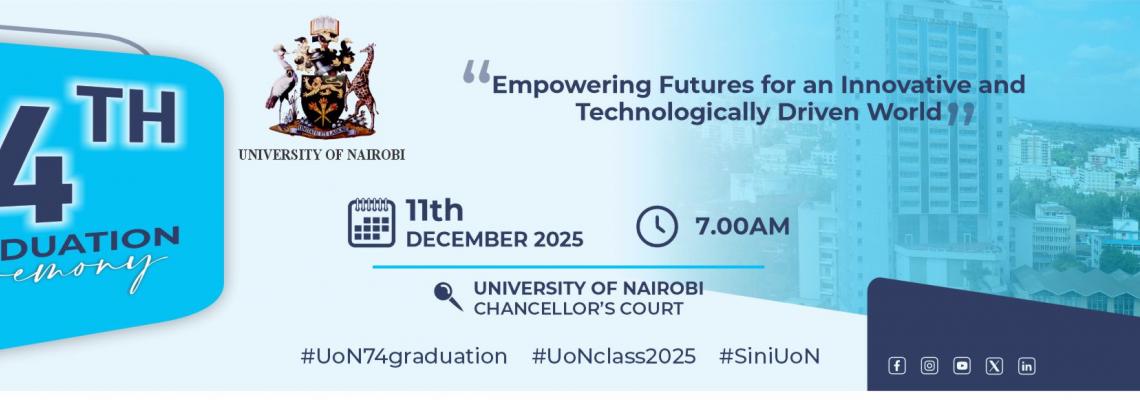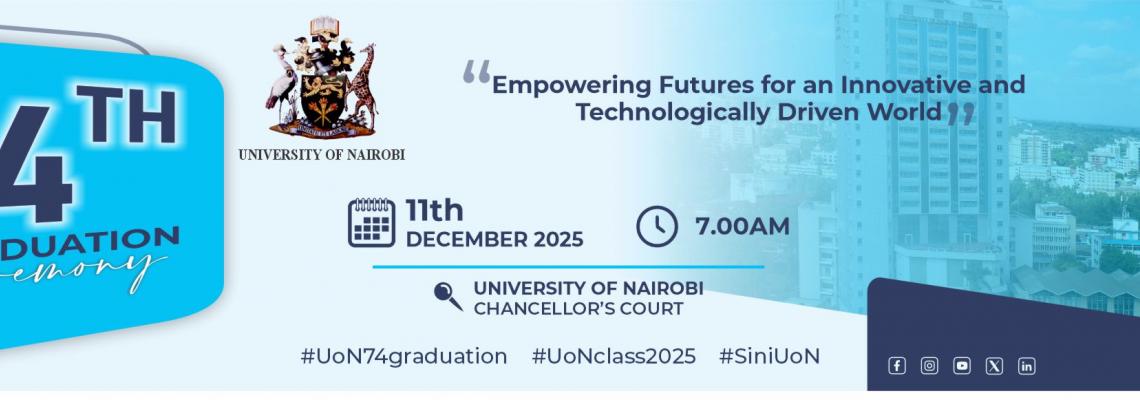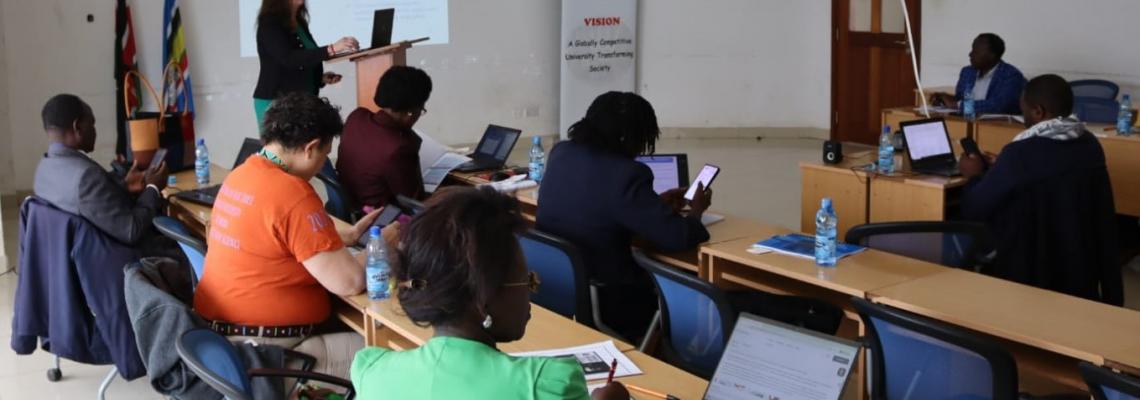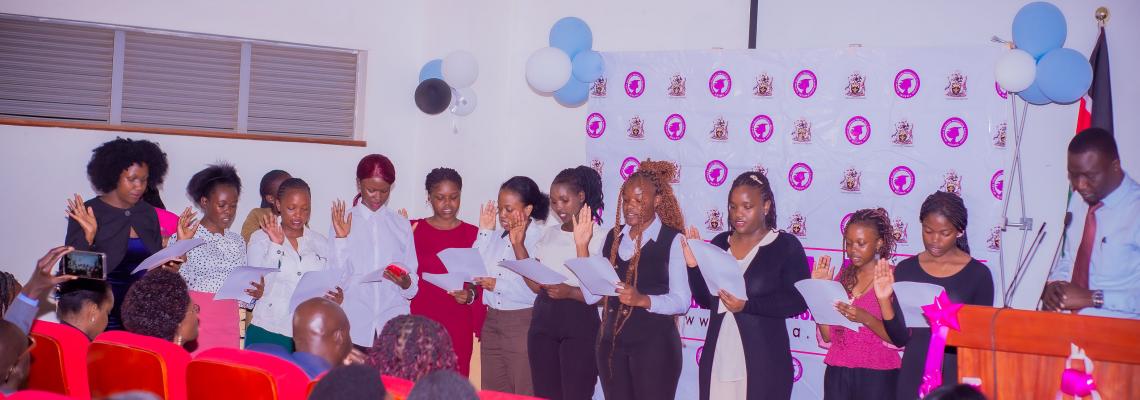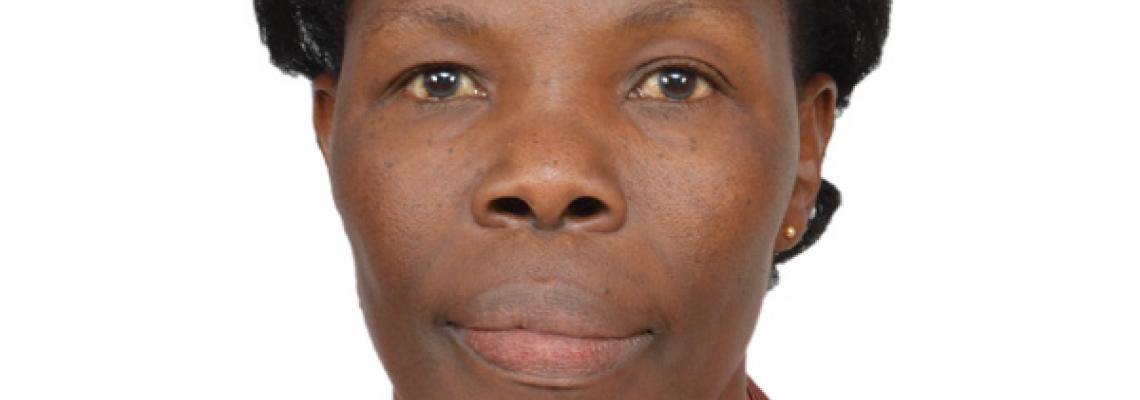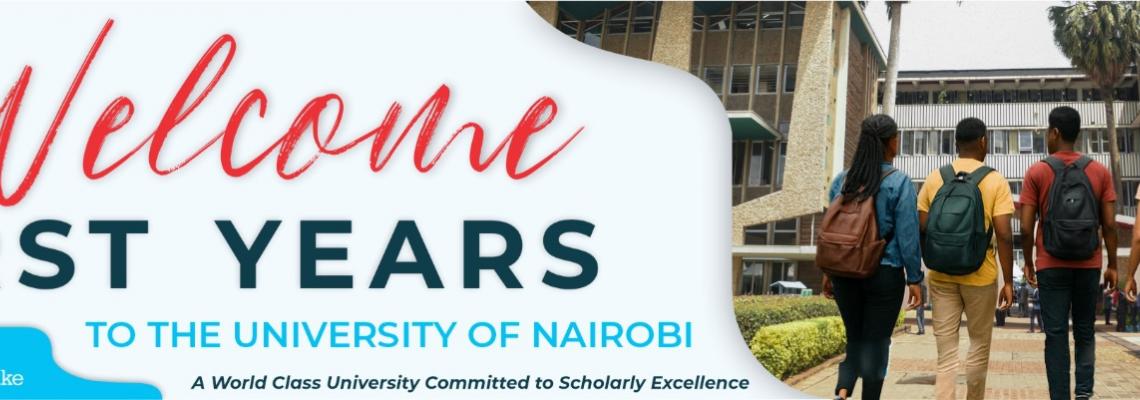Overview
Philosophy of the programme
The programme provides graduates a holistic understanding of pedagogy in Religious Education which is critical for spurring sustainable development. The Departmentof Educational Communication, Technology and Pedagogical Studies has developed a Master of Education (Religious education) to train researchers, curriculum designers, developers, implementers and evaluators having relevant knowledge, skills, values, attitudes and competencies to be effective in the pedagogical development of Religious Education. From the professional development towards leadership in Religious Education. The programme is key in producing a competent human resource to advance the development of Religious Education in the newly developed universities in the country. Also, the course forms a strong basis for those aspiring to advance their leadership of Religious Education in higher degree like the doctor of Education and Doctor of philosophy.
Objectives of the programme:
- Explore knowledge, values and skills acquired in the teaching of religious education.
- Critique learning theories in the teaching of Religious Education.
- Contribute towards the trends and issues relevant to the development of religious education.
- Demonstrate competencies necessary for carrying out research in religious education.
Rationale of programme
The Master of Education (Religious Education) programme focuses on educational practitioners keen to address moral and religious emerging issues in the contemporary environment and scholars to provide quality education based on research. We need their critical mind to be involved in the current discourse of what to teach and how to teach in the readily available religious and nonreligious environments forming a concern for an appropriate pedagogy in Religious Education
Structure
Duration and structure
- The programme shall run for a minimum period of four semesters and a maximum of 12 semesters of 15 weeks each.
- M.Ed in Religious Education shall be offered by course work, examination and project/thesis.
- The programme shall comprise 18 course units.
- A student taking the programme by coursework, examination and project shall take ten (10) core course units, four elective course units and project.
- A project shall be equivalent to four course units.
- A student taking the programme by course work, examination and thesis shall take ten core course units. two elective course units and thesis.
- A thesis shall be equivalent to six course units
- A course unit shall constitute 60 contact hours.
Mode of Delivery of the Programme
The programme shall be conducted through lectures, group discussion, seminars, tutorials, case studies, student-lecturer consultations, supervised independent study, group projects, demonstrations and e-learning services.
Open Distance and e-Learning (ODeL) Mode
The programme shall be offered by Open and Distance e-Learning (ODeL) mode. The ODeL mode will involve:
-
-
- This will include self-instructional print and electronic study materials and other relevant online services
- Written self-instructional study modules and e-learning materials, audiovisual and interactive devices, and self-tests;
- Learning Management System delivered via internet-based technologies such as Skype, e-classrooms, Google meet, Microsoft Teams, Zoom;
- Access to learning through training hubs and other resource centres and use of both physical and e-libraries at the University of Nairobi and other institutions
- Limited face-to-face sessions to provide an overview of the course at commencement of the
- semester, mid-semester, and revision period before examinations;
-
Blended Learning Mode
The course shall also be delivered through a combination of face-to-face, and ODeL where applicable.
CONTACT INFORMATION
P. O. Box 92 Kikuyu
Tel: 020-4918372
Email: dept-ecnt@uonbi.ac.ke
Admission Requirements
-
ADMISSION REQUIREMENTS
3.1 Minimum Admission Requirements
- The common regulations for the Master’s degrees in the University of Nairobi and the School of Education shall apply.
- The following shall be eligible for admission into the Master of Education (Religious Education):
-
the taught course units provided that these are from universities recognized by the University of Nairobi Senate.
- A student shall be allowed credit transfer in a course unit which is equivalent and/or at the same level with what is offered by the University of Nairobi
- A credit transfer shall be given for unit courses passed at B grade and above.
- An applicant seeking transfer of credit shall send a formal application to the Graduate School through the Dean, School of Education justifying the request and attaching supporting documents.
- Application for credit transfer shall be processed after payment of the prescribed fees 3.2 Credit Transfers
- A student shall be allowed to transfer credit up to a maximum of one third of
- A holder of a pass degree in Education from the University of Nairobi (Religious Studies major or minor) and five years teaching experience or any other qualification recognized by Senate.
- A holder of Bachelor of Education degree with at least Upper Second Class honours degree of the University of Nairobi (Religious Studies major or minor) or its equivalent qualification recognized by Senate.
- A holder of any other Bachelor’s degree of the University of Nairobi with at least an upper second class honours (Religious Studies major or minor) and postgraduate Diploma in Education (PGDE) of the University of Nairobi or equivalent qualification recognized by Senate.
- A holder of lower second class degree in education obtained from the University of Nairobi (Religious Studies major or minor) and two years teaching experience or any other equivalent qualification recognized by Senate.
APPLICATION LINK
CONTACT INFORMATION
The Chairman, Dept. of Educational Communication Technology and Pedagogical Studies
P. O. Box 92 Kikuyu
Tel: 020-4918372
Email: dept-ecnt@uonbi.ac.ke
Careers
Career opportunities
- Trainer of trainer
- School manager
- Curriculum developer
- Counsellor
- Researcher
- Writers
- Post-secondary teacher
- Community activists
- Policy developer
Attachment opportunities
Students undertake their attachment in high schools, teacher training colleges and other institutions where their expertise may be required
Fees and Funding
| MASTER OF EDUCATION -E55 | YEAR 1 | YEAR 2 | |||
| SEMESTER 1 - 5UNITS | SEMESTER 2 - 5UNITS | SEMESTER 1 -4UNITS | SEMESTER 2-PROJECT | TOTALS | |
| TUITION @ 25200 | 126,000.00 | 126,000.00 | 100,800.00 | 100,800.00 | 453,600.00 |
| MEDICAL FEE (PER YEAR) | 6,500.00 | - | 6,500.00 | - | 13,000.00 |
| ICT SERVICES - (PER YEAR) | 7,000.00 | - | 7,000.00 | - | 14,000.00 |
| EXAMINATION (PER UNIT @1000) | 5,000.00 | 5,000.00 | 4,000.00 | - | 14,000.00 |
| REGISTRATION (PER SEMESTER@2250) | 2,250.00 | 2,250.00 | 2,250.00 | 2,250.00 | 9,000.00 |
| ID CARD ( PER YEAR) | 1,000.00 | - | 1,000.00 | - | 2,000.00 |
| ACTIVITY-( PER YEAR) | 2,000.00 | - | 2,000.00 | - | 4,000.00 |
| CAUTION - (ONCE) | 5,000.00 | - | - | 5,000.00 | |
| LIBRARY (PER YEAR) | 5,000.00 | - | 5,000.00 | - | 10,000.00 |
| STUDENT ORGANISATION(PER YEAR) | 1,000.00 | - | 1,000.00 | - | 2,000.00 |
| THESIS EXAMINATION | - | - | - | 30,000.00 | 30,000.00 |
| Totals | 160,750.00 | 133,250.00 | 129,550.00 | 133,050.00 | 556,600.00 |
| Grand totals | 556,600.00 | ||||

